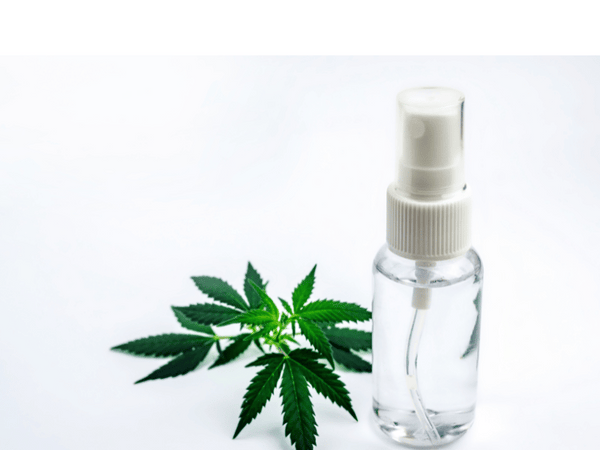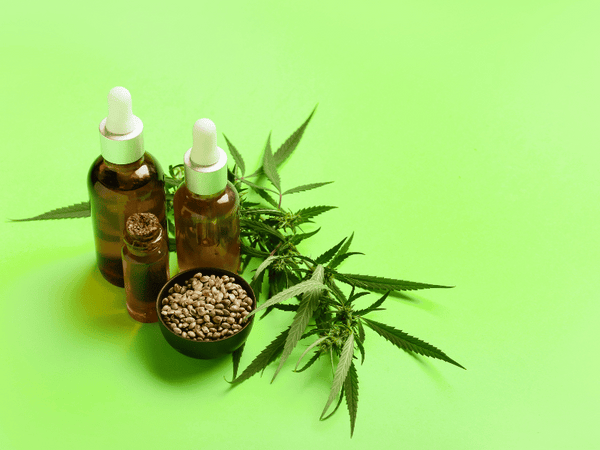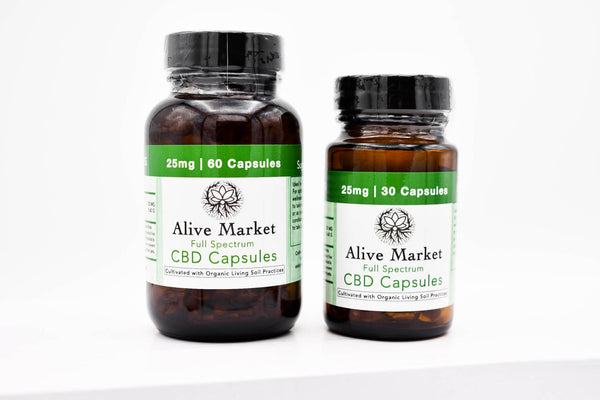In the ever-evolving landscape of natural health and wellness, two supplements have surged to the forefront, captivating the interest of health enthusiasts worldwide: Ashwagandha and CBD. Both hailed for their remarkable health benefits, these natural wonders stem from ancient traditions and modern science alike, offering unique pathways to better health and an improved quality of life.
Taking Ashwagandha, a cornerstone of Ayurvedic medicine, is renowned for its stress-relieving and rejuvenative properties. CBD, derived from the cannabis plant, has quickly gained acclaim for its potential to alleviate pain, anxiety, and a myriad of other conditions, without the psychoactive effects associated with its cousin, THC.
As we delve into the realms of Ashwagandha and CBD, this guide aims to illuminate the distinctive features, benefits, and considerations associated with each supplement. By comparing their origins, mechanisms of action, and the scientific evidence backing their use, we will explore how these supplements differ and what they offer to those seeking natural solutions for better health.
Overview of Ashwagandha

Ashwagandha, also known as Withania somnifera, is a powerful evergreen shrub that has been used for thousands of years in Ayurvedic medicine, the traditional healthcare system of the Middle East, Africa and India. Often referred to as "Indian ginseng" and "winter cherry" because of its rejuvenating beneficial properties during ancient times. Ashwagandha is a cornerstone herb in the world of natural medicine, prized for its adaptogenic mushrooms qualities. Adaptogens are substances that may help the body to reduce high anxiety and high stress levels and exert a normalizing effect on bodily processes when you are taking ashwagandha.
Historical Background and Traditional Uses
The roots of Ashwagandha's usage trace back over 3,000 years, making it one of the oldest known medicinal herbs. Traditionally, it has been employed to strengthen the immune system after an illness, improve energy levels, and enhance concentration. In Sanskrit, Ashwagandha means "the smell of a horse," indicating that the herb imparts the vigor and strength of a stallion. The plant itself is a small shrub with yellow flowers, native to India and North Africa, but its roots and, occasionally, leaves are where its potent therapeutic properties lie.
Active Compounds and Mechanisms of Action
The primary active compounds of this evergreen shrub are a group of naturally occurring steroidal lactones known as withanolides. These compounds are believed to contribute to the herb's benefits, including its anti-inflammatory, antioxidant, and anxiolytic effects. By mimicking the body's stress-reducing hormones, taking Ashwagandha may help mitigate the body's response to stress, reducing the potential harmful effects of chronic stress on the body.
Potential Health Benefits of Ashwagandha
The potential benefits of Ashwagandha on health for anxiety and stress are that, although brief exposure to the stress response is meant to be a beneficial coping mechanism, being exposed to stress over a long period of time can result in the decline of overall health and the complication of existing diseases.
Ashwagandha has the ability to reduce the dominance of the sympathetic nervous system. Ashwagandha is renowned for its adaptogenic mushrooms properties, which are believed to influence immune function, help the body relieve stress, provide relief, enhance focus, support heart health and restore balance. It can impede pain signals from using the central nervous system to reach the brain.
Some of the benefits of ashwagandha include:
- Stress reduction: Ashwagandha root has long been used in Ayurvedic medicine to reduce stress and fatigue-relieving properties. It is believed to lower cortisol levels and modulate the body's stress levels response by regulating stress hormone levels, aka cortisol levels, which may help in relieving anxiety and promoting a sense of calmness and relaxation throughout the day.
- Enhanced immune function: Ashwagandha supplements are thought to possess immunomodulatory effects, helping to strengthen the immune system. It may promote the activity of immune cells, such as natural killer cells and macrophages, which play a crucial role in defending the body against infections and diseases.
- Improved cognitive function: Preliminary studies suggest that ashwagandha may have neuroprotective effects and potential benefits for brain function. It can give a calming effect on your mind and body. One way it's believed to do this is by reducing levels of the stress hormone, cortisol. Additionally, ashwagandha may help reduce age-related cognitive decline.
- Anti-inflammatory properties: Ashwagandha supplements contain compounds that exhibit anti-inflammatory effects, potentially helping to reduce inflammation in the body. Chronic inflammation is associated with various health issues, such as heart disease, diabetes, and certain types of cancer.
- Mood enhancement: Ashwagandha has been traditionally used as a mood enhancer. It may help improve symptoms of depression and anxiety and reduce your stress level by promoting the production of serotonin, a neurotransmitter associated with mood regulation.
- Energy and vitality: Ashwagandha is believed to increase energy levels and combat fatigue. It can improved sleep quality. It may help with a better night's sleep, helping people fall asleep faster and spend more best time asleep, which is why it may help fight high-stress levels. It may support physical endurance and improve overall vitality, making it popular among athletes and individuals seeking to enhance their performance.
- Improve athletic performance: Higher doses of it were noted to improve athletic performance and strength, boost your heart health and implying these are suitable for daytime use.
Overview of CBD
Cannabidiol, commonly known as CBD, is a naturally occurring compound found in the cannabis plant. Unlike its more famous cousin, tetrahydrocannabinol (THC), CBD does not produce a "high" or psychoactive effect. This distinction has led to its increasing popularity as a therapeutic supplement, with users seeking the benefits of cannabis without the psychoactive side effects. CBD is extracted from the hemp plant, a variety of the Cannabis sativa species that contains low levels of THC.
The Science Behind CBD
CBD interacts with the body's endocannabinoid system (ECS), a complex network of receptors and neurotransmitters that plays a crucial role in maintaining homeostasis. The ECS regulates various physiological processes, including pain sensation, mood, memory, appetite, immune response, and a host of other things. A growing body of evidence is explaining how and why it works. CBD's interaction with the ECS, particularly its ability to influence the activity of receptors and the production of endocannabinoids, underlies its potential therapeutic effects.
Types of CBD Products
CBD oil, a versatile and widely used extract from the cannabis plant, is offered in a multitude of forms to cater to diverse preferences and requirements. This range of options ensures that individuals can select a CBD product that aligns perfectly with their lifestyle and health goals. When embarking on the journey to find the ideal CBD product, several key factors merit consideration.
The method of consumption plays a pivotal role in the selection process. CBD products are available in various forms, including oils and tinctures, edibles like gummies and chocolates, capsules and pills, topical creams and salves, and even vaping products. Each method offers distinct advantages and rates of absorption into the body. For instance, topical applications are suited for localized relief, while edibles and oils might be preferred for sustained release and ease of use.
Finally, the importance of purchasing CBD products from reputable sources cannot be overstated. Given the unregulated nature of the market, it is imperative to choose products from companies that commit to transparency and quality assurance.

The following are some common types of products:
1. CBD oils and tinctures
CBD oils are popular and versatile products that typically come in small bottles with a dropper for easy dosage control. Taking CBD oils are taken sublingually (under the tongue) and absorbed directly into the bloodstream for quick effects. They can be flavored or unflavored and may contain other beneficial compounds like terpenes. This can bring calmness to your mind and body.
2. CBD capsules
CBD capsules are pre-dosed capsules that contain CBD oil or CBD isolate. They are swallowed and absorbed through the digestive system. Capsules provide a convenient and discreet way to consume CBD, and they offer precise dosing. CBD capsules are also a good option for anyone taking CBD to support general wellness.
Softgels are similar to capsules but are typically made with gelatin or plant-based materials, providing an alternative for those who prefer non-animal-derived products. Advanced CBD Liquid Soft Gels provide a premium, easy-to-swallow delivery system that allows us to combine our Full Spectrum Hemp Extract with nutritious oils such as flaxseed oil and MCT oil for additional nutritional benefits.
3. CBD topicals
CBD topicals come in various forms such as roll-ons, creams, lotions, lemon balm, salves, and patches. These products are designed for localized application on the skin. CBD topicals are often used to target specific areas of discomfort, providing potential relief for muscle soreness, joint pain, and skin conditions like eczema or psoriasis.
4. CBD edibles
CBD edibles include a wide range of products, such as gummies, chocolates, cookies, and beverages. These products are infused with CBD extract and can be a tasty and discreet way to consume CBD. Edibles undergo digestion and may take longer to produce effects, but the effects can last longer compared to other consumption methods.
5. CBD pre-rolled joints
Pre-rolled joint, vape pens, cartridges, and e-liquids. Smoking involves inhaling CBD vapor into the lungs, allowing for rapid absorption into the bloodstream. It is essential to use CBD products specifically designed for CBD and follow proper safety precautions.
6. CBD Gummies:

CBD gummies are edible candies that contain cannabidiol (CBD) oil. They come in a rainbow of flavors, colors, shapes, and concentrations of CBD. The potential benefits of CBD gummies are similar to those of other CBD products. CBD is a compound found in the cannabis plant, and it's known for its potential benefits without the psychoactive effects typically associated with cannabis use.
7. CBD concentrates:

CBD concentrates are highly potent forms of CBD that come in various forms, such as wax, shatter, or crystals. These products contain a high concentration of CBD and are typically used for dabbing or vaporizing. Due to their potency, they are recommended for experienced CBD users.
8. Water Soluble CBD:

Water-soluble CBD represents a groundbreaking shift in CBD technology, offering a highly bioavailable form of cannabidiol that dissolves easily in water. Unlike traditional CBD oil, which is hydrophobic and does not mix well with water, water-soluble CBD utilizes advanced nanotechnology to break down CBD molecules into smaller, water-compatible particles.
Potential Health Benefits of CBD oil
CBD oil has garnered attention for its potential therapeutic effects and has been studied for various health conditions. There are also signs that it can help concentration and boost mental performance and clarity. While more research is needed to establish definitive conclusions, preliminary evidence suggests the following potential benefits of CBD oil:
- Pain relief:
 CBD has been explored for its analgesic properties, with studies indicating its potential to alleviate chronic pain, neuropathic pain, and inflammatory pain. It may interact with receptors in the endocannabinoid system and reduce inflammation, offering relief to individuals with conditions such as arthritis, fibromyalgia, and multiple sclerosis.
CBD has been explored for its analgesic properties, with studies indicating its potential to alleviate chronic pain, neuropathic pain, and inflammatory pain. It may interact with receptors in the endocannabinoid system and reduce inflammation, offering relief to individuals with conditions such as arthritis, fibromyalgia, and multiple sclerosis.- Anxiety and stress reduction:
 Does CBD reduce stress? CBD has been investigated for its anxiolytic effects, potentially helping to reduce symptoms of anxiety disorders, such as post-traumatic stress disorder (PTSD), generalized anxiety disorder (GAD), social anxiety disorder, and panic disorder. It may also have stress-relieving properties, promoting a sense of calmness and relaxation.
Does CBD reduce stress? CBD has been investigated for its anxiolytic effects, potentially helping to reduce symptoms of anxiety disorders, such as post-traumatic stress disorder (PTSD), generalized anxiety disorder (GAD), social anxiety disorder, and panic disorder. It may also have stress-relieving properties, promoting a sense of calmness and relaxation.- Improved sleep quality:

CBD may play a role in improving sleep and addressing sleep disorders such as insomnia. It regulates serotonin and GABA levels (neurotransmitters that affect mood, sleep, and anxiety), creates systemic balance, and restores homeostasis. Some anecdotal evidence suggests that CBD can help regulate sleep patterns, reduce insomnia symptoms, and enhance overall sleep duration and quality. It helps you fall asleep faster.
- Neuroprotective properties:

CBD has shown potential as a neuroprotective agent, with research indicating its ability to protect brain cells from damage and promote their survival. This has led to investigations into its potential therapeutic applications for neurological conditions such as epilepsy, Parkinson's disease, and Alzheimer's disease.
- Anti-seizure effects:
 CBD has gained significant attention for its anti-seizure properties, particularly in the treatment of certain forms of epilepsy. In fact, a CBD-based medication has been approved by the FDA for the treatment of two rare forms of epilepsy, Lennox-Gastaut syndrome and Dravet syndrome.
CBD has gained significant attention for its anti-seizure properties, particularly in the treatment of certain forms of epilepsy. In fact, a CBD-based medication has been approved by the FDA for the treatment of two rare forms of epilepsy, Lennox-Gastaut syndrome and Dravet syndrome.- Anti-inflammatory properties:

CBD exhibits anti-inflammatory effects, which may have implications for conditions characterized by chronic inflammation, such as rheumatoid arthritis, inflammatory bowel disease (IBD), and asthma. By reducing inflammation, CBD may help alleviate associated symptoms and promote overall well-being.
Ashwagandha vs. CBD: The Key Differences

While both Ashwagandha and CBD offer impressive benefits, particularly in stress relief and improved mental health, they operate within the body in distinct ways due to their different active components and mechanisms of action. Ashwagandha's adaptogenic properties make it particularly effective in balancing stress hormones and enhancing physical endurance, whereas CBD's interaction with the endocannabinoid system offers a broader range of potential benefits, from neuroprotection to anti-inflammatory effects.
Choosing between Ashwagandha or CBD depends largely on individual health goals and conditions. For those primarily seeking stress relief and brain function improvement, Ashwagandha may be the preferred choice. Conversely, individuals dealing with chronic pain, anxiety, or inflammatory conditions might find CBD more beneficial. Hence, both CBD and ashwagandha are extracted from plants, and therefore they may be considered natural supplements.
Origin and Active Components
Ashwagandha, an evergreen shrub deeply entrenched in the ancient practice of Ayurvedic medicine, is celebrated for its withanolides—compounds that bestow the herb with its potent stress-reducing, anti-inflammatory, and antioxidant properties. This natural adaptogen has been a cornerstone of holistic wellness for centuries, offering a natural pathway to balance and rejuvenate the body and mind.
On the other hand, CBD, a contemporary marvel extracted from the hemp plant, a variant of the Cannabis sativa family, offers a different kind of solace. By engaging with the body's system, CBD provides a spectrum of therapeutic benefits, from alleviating pain to reducing anxiety, all without the psychoactive effects typically associated with cannabis.
Together, Ashwagandha and CBD represent the convergence of ancient wisdom and modern science, each offering unique benefits to those seeking natural ways to manage stress, pain, and inflammation, underscoring the diverse potentials of natural supplements in today’s health and wellness landscapes.
Apart from their origins, there is little that separates ashwagandha and CBD. Both are natural supplements with wide-ranging benefits.
Mechanisms of Action
- Ashwagandha works by modulating the body's stress response systems, particularly influencing cortisol levels, which helps in reducing stress and anxiety, makes you fall asleep faster, and potentially enhances mind function and physical performance.
- Taking CBD interacts with the body's endocannabinoid system, affecting receptors that regulate pain, mood, and inflammation, offering broad therapeutic potentials from neuroprotection to anti-inflammatory benefits.
Health Benefits
- Stress and Anxiety: Both supplements are celebrated for their stress-reducing and anxiolytic benefits. Ashwagandha is particularly noted for its adaptogenic properties, helping the body adapt to stress, while CBD may offer more direct anxiety relief through its interaction with the endocannabinoid system.
- Pain and Inflammation: CBD is widely recognized for its effective analgesic and anti-inflammatory properties, making it suitable for chronic pain management. Ashwagandha may also offer anti-inflammatory benefits, but it is more subtly aligned with enhancing overall vitality and stress resilience rather than direct relief of pain.
- Sleep: Both supplements can contribute to better sleep. Ashwagandha is often used to improve sleep quality indirectly through stress reduction, while CBD may more directly influence sleep by altering sleep cycles and reducing sleep disturbances.
- Cognitive and Physical Health: Ashwagandha has been linked to improved brain function and physical performance, making it a popular choice among athletes and those looking to enhance mental clarity. CBD's benefits extend to neuroprotective properties, potentially benefiting those with neurological disorders. According to a 2020 research study published in the Journal of Psychopharmacology, a single 600mg dose of CBD boosts the blood supply to the hippocampus. This portion of the brain handles memory processing.
Safety and Side Effects
While both Ashwagandha and CBD are generally considered safe for most well being, they can have side effects and interact with other medications. Ashwagandha may cause mild side effects like nausea or diarrhea in some, while CBD's side effects could include changes in appetite, fatigue, or interactions with other medications. It's crucial to consult with a healthcare provider before starting any new supplement, especially for individuals with pre-existing conditions or those taking other medications.
Choosing Between Ashwagandha and CBD
Although, both are considered as power couple, deciding whether Ashwagandha or CBD is right for you depends on your specific health goals, conditions, and preferences. For those seeking natural stress relief and cognitive boost, Ashwagandha might be the preferred choice. While our standard broad spectrum and full spectrum CBD formulas don't contain any ashwagandha, they provide a stronger concentration of CBD in every serving, which means a bigger boost in terms of the entourage effect.
Research found that when Ashwagandha was combined with other herbs (not specifically CBD), participants with insomnia experienced improved sleeping patterns. Similarly, evidence supports the use of CBD for sleep , both in terms of helping users fall asleep and maintain sleep through the night. Conversely, individuals looking for pain relief, anti-inflammatory benefits, or neuroprotective effects may find CBD more beneficial.
Consider Your Health Goals
- Stress and Anxiety: If your primary goal is to manage stress and anxiety, both Ashwagandha and CBD can be beneficial. Ashwagandha may be particularly effective if you're also interested in enhancing endurance and reducing cortisol levels. CBD might be preferred for its broader impact on mood regulation and anxiety reduction.

- Pain Management: For chronic pain, inflammation, or neuropathic pain, CBD is likely the more effective choice due to its significant analgesic and anti-inflammatory properties.

- Sleep Quality: Both supplements can improve sleep, but their approaches differ. Consider Ashwagandha if stress is the main culprit behind your sleep issues, while CBD might be better for direct improvement of sleep quality and reduction of sleep disturbances.

- Neuroprotection and Cognitive Function: Ashwagandha is known for its potential cognitive benefits, whereas CBD has been researched for its neuroprotective properties, making best CBD a potential choice for those with neurological concerns.

Quality and Purity Standards
- Ashwagandha: Look for supplements certified for their withanolide content, as this is the active compound. Third-party testing is a plus for ensuring purity and potency.
- CBD: Opt for products that provide third-party lab results (also known as Certificates of Analysis, or COAs) to verify the best CBD content and confirm the absence of THC, pesticides, and heavy metals.
Incorporating Ashwagandha or CBD into Your Health Regimen
- Start with a low dose to assess your body’s response, gradually increasing to the recommended dosage as needed.
- Pay attention to how your well being reacts over time, and adjust your usage based on personal experiences and health outcomes.
Choosing between Ashwagandha and CBD involves a careful assessment of your health goals, potential benefits, and individual circumstances. By considering these factors, you can make a choice that best supports your wellness journey.
How to Use Ashwagandha and CBD
Ashwagandha and CBD (cannabidiol) are popular natural supplements known for their potential health benefits, but it's important to use them responsibly. Ashwagandha, an adaptogenic herb, is traditionally used to combat stress, improve concentration, and enhance energy levels. It is generally recommended to start with a low dose, such as 300 to 500 mg daily, and gradually increase as needed, not exceeding the maximum recommended dose provided by the manufacturer.
For CBD, which is derived from the cannabis plant and utilized for its anti-inflammatory, analgesic, and anxiety-reducing properties, the dosage can vary widely depending on the individual, the form in which it is taken, and its concentration. A common starting point is 20–40 mg per day, with adjustments made based on personal response.
Both supplements should be used with caution, and it's advisable to consult with a healthcare provider before starting, especially for individuals with underlying health conditions or those taking other medications to avoid potential interactions. Monitoring your body's response to either supplement and adjusting the dose accordingly is crucial for achieving the desired health benefits while minimizing potential side effects.
General Tips for Integrating Ashwagandha and CBD into Your Health Regimen
- Start Slow: Begin with a lower dose to assess how your body reacts and gradually increase as needed.

- Consistency is Key: Regular, consistent use is often necessary to see the full benefits of both Ashwagandha and CBD.

- Monitor Your Response: Pay attention to how your body responds over days and weeks. Adjust the dosage or timing if needed to find what works best for you.

- Consult Healthcare Providers: Especially if you have existing health conditions or are taking other medications, it’s crucial to consult with a healthcare professional before adding this to your daily routine. to avoid stomach upset.

Importance of Quality and Reputable Sources
When purchasing ashwagandha or CBD products, it is crucial to prioritize quality and choose reputable sources. Look for products that have undergone third-party lab testing to ensure accuracy in CBD concentration, the absence of contaminants, and compliance with regulatory standards. Reputable manufacturers are transparent about their sourcing, extraction methods, and quality control processes. This helps ensure that you are using safe and reliable products that meet your expectations.
Conclusion
In conclusion, both ashwagandha and CBD offer potential numerous health benefits, but they have different mechanisms of action and compositions. Factors such as personal health goals, individual preferences, and potential drug interactions should be considered when choosing between the two. CBD and Ashwagandha are quite the power couple, especially when it comes to combining CBD's relaxing and mood-boosting properties with Ashwagandha's ability to help your well being. CBD may support your mood throughout the day by affecting the way your brain's chemical receptors respond to serotonin.
In conclusion, both CBD and Ashwagandha are powerful natural supplements that can work synergistically to boost overall wellness and may help soothe anxiety and promote sleep.
Consulting with a medical professional before purchasing your first order from reputable sources is essential. Remember to seek professional advice and make informed decisions based on your specific needs and circumstances.







